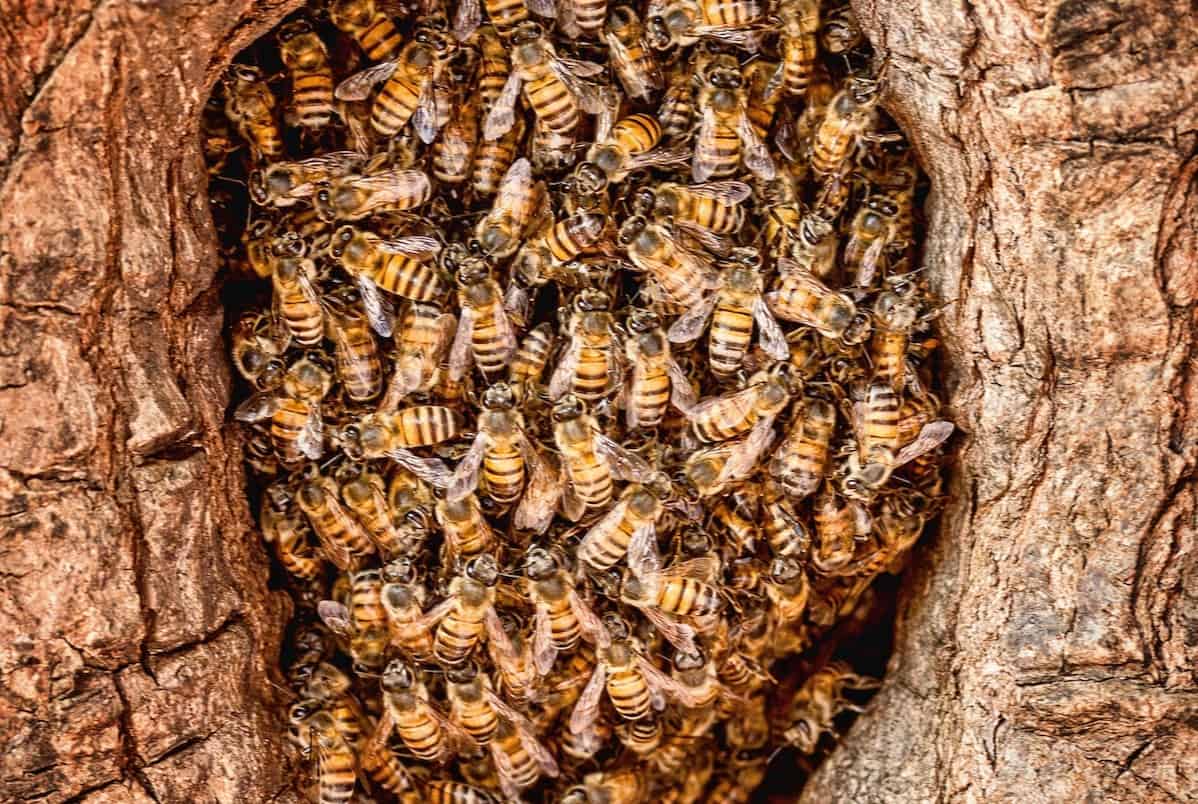It’s time to resurrect chivalry; there’s a six-legged damsel in distress. Yes, the bees need our help. What can we do to help save the bees?
We put them in their current predicament, so we owe them.
When we talk about bees, we are often thinking about honey bees.
They tell us how the environment is doing, and currently, it’s not doing so well. It’s not just honey bees that are hurting.
There are thousands of other bee species out there in danger of extinction because the world we have created around them is chemically oppressive.
Beekeepers, as well-meaning as we are, can’t save the bees. At least they can’t do it alone. The threat is beyond their jurisdiction.
That’s where everyone else comes in. But what can we do?
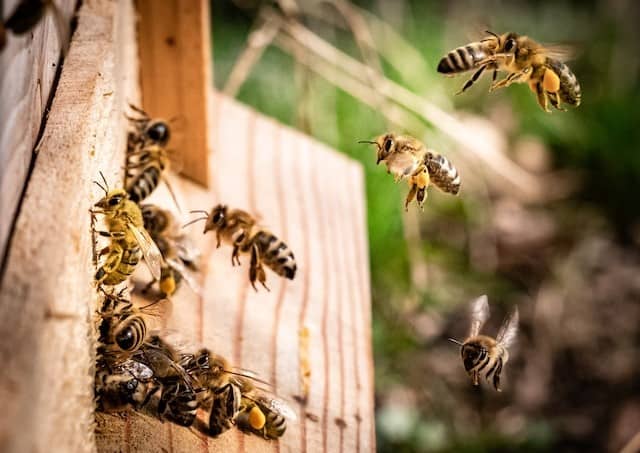
Stop Using Chemical Pesticides and Herbicides Would Help Save The Bees
I know we like our fruits and vegetables perfectly, but at what cost?
Unfortunately, some of the pesticides in use do not limit their destruction to just harmful insects.
Many of the labels print a warning about how long you have to wait before you can harvest after spraying. Unfortunately, bees don’t have access to these labels, and they don’t have a waggle translation on the pack, so the bees don’t know how to stay away.
Nature is a system of balance.
If we can create a little ecosystem in our gardens, then our dependence on chemical warfare will be greatly reduced. Companion plants can provide some protection against pests and diseases.
For instance, some herbs can help attract carnivorous wasps that feed on some of the bugs that feast on your vegetables. Planting onions can help to deter some soil-borne pests away from your precious tomatoes.
There are also other organic solutions, such as strains of fungi that are used as bio-pesticides, only eliminating the target insect and leaving the other insects free and unharmed.
Practicing mulching can reduce the prevalence of weeds and negate the need for herbicides.
Bee-safe food is safe for you, so if you don’t do it for the bees, you can do it for yourself.
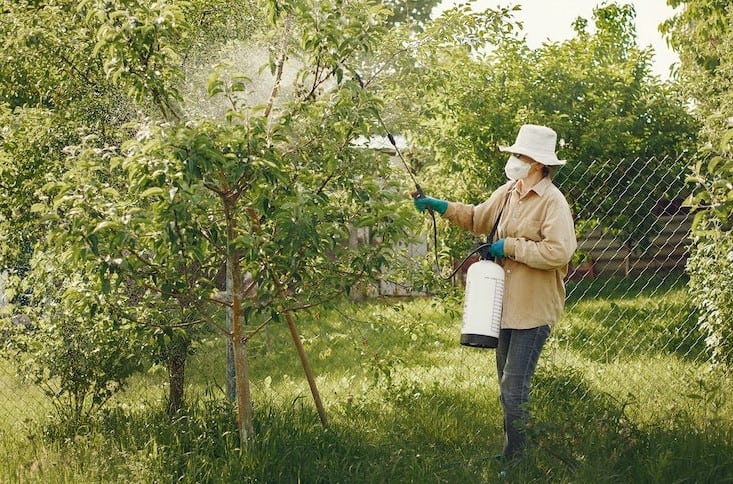
Save The Bees By Going Organic
Going organic isn’t just fashionable. It is advisable. In its own way, it helps save the bees.
Although organic produce is a little more expensive than regular food, it is healthier and chemical-free. This means that no bees were harmed in growing the fruits and vegetables.
Adding some organic items to your grocery basket will help to support those farmers who endeavor to keep their farms free of chemical poisons.
The more they sell, the longer they stay in business. It may also push other farmers to try going organic and hopefully create more safe spaces for bees to forage.
Organic food starts with organic seeds. Some commercial seeds are treated with systemic pesticides that are a permanent part of the plant throughout its life cycle. That means that even without spraying the plant, the nectar and pollen could be toxic to bees.
With organic practices, the plants remain safe for both bees and people.
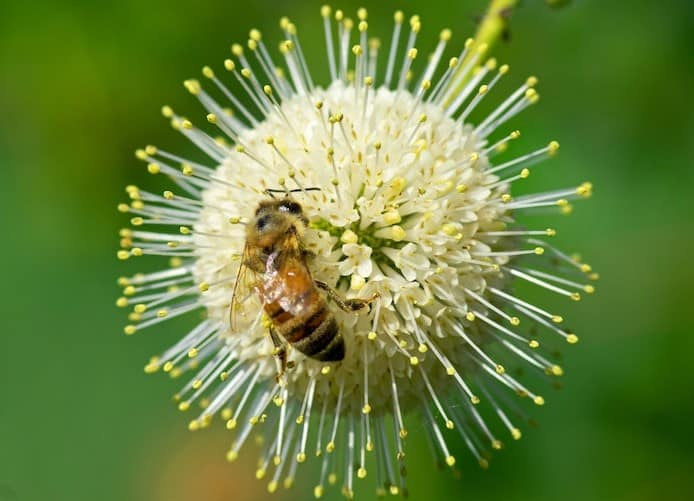
An Imperfect Lawn Makes for Happy Bees
Your picture-perfect lawn may be beautiful to the human eye, but it’s a barren piece of land for bees. There’s nothing for them to feed on.
We are often quick to weed out the dandelions and the clovers, the very flowers our bees need.
They can’t do anything with the lawn grass that is cut weekly to match the wall-to-wall carpet inside the house.
What you end up with is similar to a painting. It’s beautiful but static and lifeless. What you want is a vibrant ballet with several dancers.
When you allow the weeds to grow, you have a symphony of sounds created by all your dancers. Your honeybees, bumblebees, wasps, and birds all come together to bring your lawn to life.
Grow a Pollinator Garden
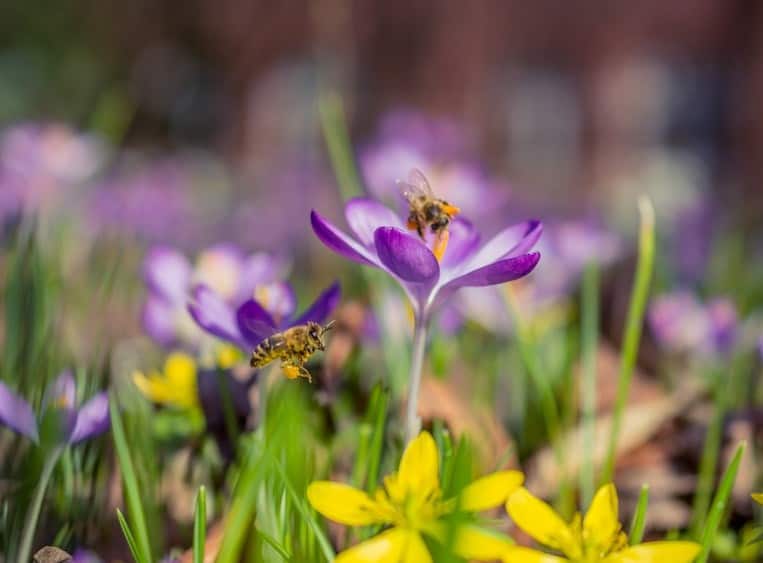
If you have space, why not dedicate a portion of your garden to plants specifically designed to feed bees? There’s no reason to limit yourself to attracting honey bees. Some of the other bee species could use a food source as well.
Have a few herbs that you allow to flower, thus sacrificing flavor for their sustenance. Find out what local flora grows naturally in your area. That way, the local insects will have a buffet in your garden.
Just ensure that the plants you grow for the pollinators are pesticide-free to ensure that you do not harm the insects you intend to save.
If you can, leave a small portion of your garden bare to provide a space for ground nesters. These are some bee species that make their home in the ground, and they can’t do that if the entire expanse of your backyard is covered in roots.
In contrast to honey bees, many solitary species make their home in the dirt, so ensure that you keep the soil healthy by avoiding any chemical drenches.
Educate Yourself about Bees
They say a little knowledge is a dangerous thing. That’s definitely true when it comes to bees. Part of the reason why we have treatment-resistant mites is that we oversimplified the varroa problem that we faced.
Few people took the time to truly understand this pest before they tried to eliminate it. It’s no surprise that the chemicals didn’t work.
There is still so much we don’t know about that bee world. If we are serious about making a difference and saving our bees, we have to learn what we are up against.
Understanding the bee and its natural environment will help us identify where we have gone wrong and how we can restore the balance in their favor.
Living in the technology age has helped to simplify the acquisition of knowledge. There are lots of e-books available that can break down the bee and its behavior so that more of us can change our attitude toward bees.

Have Plants Bloom at Different Times of the Year
As you plan your pollinator garden, please realize that your bees may not have anything to eat all winter.
To ensure that they remain fed during the sunny months, have a variety of plants that flower at different times of the year so that they always have a good source of nectar from spring to fall.
If you live in a more tropical area, see if you can have blooms all year long. This way, if you and your neighbors put the work in, you can have enough honey for yourselves and the colony for the winter.
Mono-cropping, which is the practice of cultivating one type of plant, is the reason states import bees for pollination purposes.
If the hives were to remain a permanent feature, the bees would starve because there wouldn’t be anything for them to eat for the rest of the year.
When You Find a Nest That You’d Rather Not Keep, Call the Experts
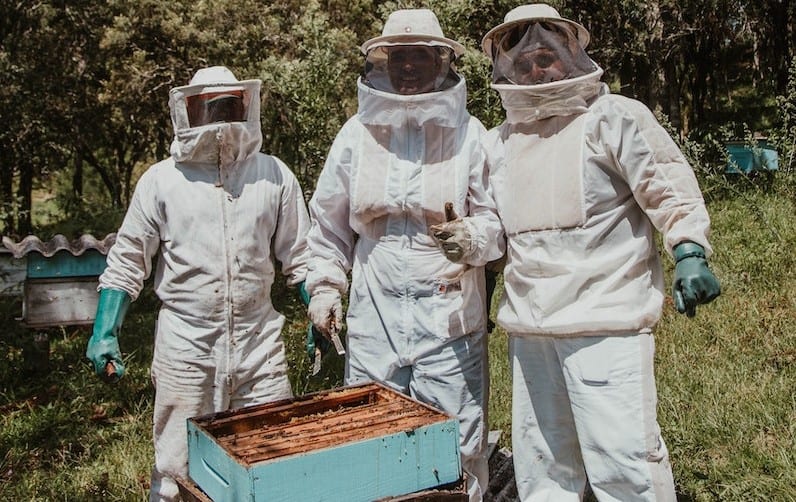
Not everyone can be a beekeeper. Even if they can, not everyone should. Also, not everyone wants to, and that’s okay.
So when faced with a swarm of honey bees, or a ground nest of bumblebees, the best you can do is call an expert who can capture and relocate the swarm without having to kill them off. If there’s a beekeepers association in your area, that should be your first call.
Many colonies don’t make it through the winter, so they will be happy to capture a new swarm if they can. This way, even if you do not want to live in such close proximity with these little helpers, you have done your part to ensure their survival.
Get Involved With Bee Safe Activism
Although we can do more to make the environment bee-friendly, the biggest impact lies in the policy. Corporations that engulf acres of fruit trees and vegetable plants in a fog of pesticides are doing much greater harm to the bees than individuals.
Neonicotinoid pesticides have already been identified as one of the greatest threats to bees. The only way to keep these big players in check is to plug the loopholes that allow the use of dangerous chemicals.
This fight can only be won if we actively lobby our respective representatives. As the buzzing of the bees dies down, we need to make more noise.
There are various groups you can join that have the mandate to educate others on the bee situation and what we can do. Write to your councilman and even your senator. Every little effort counts.
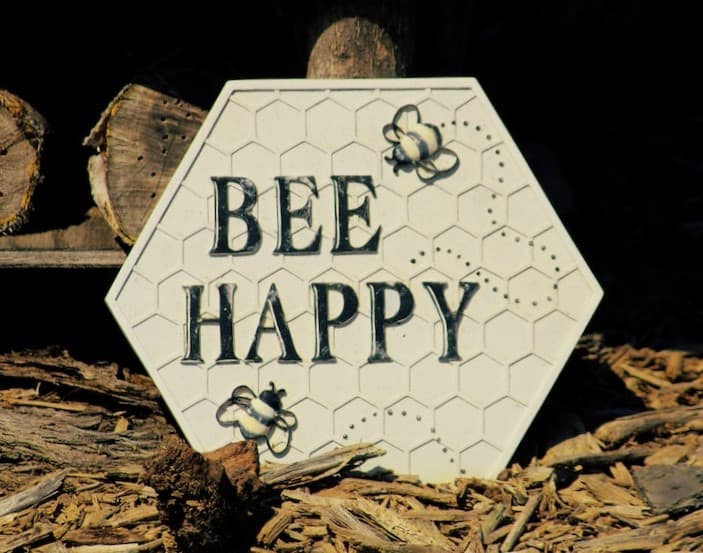
Final Thoughts on How to Save the Bees
Saving the bees is a big responsibility. There’s no time to waste. There are many ways we can make a difference.
It could be as simple as writing a letter or as fun as starting a little garden. You could donate to charities dedicated to promoting beekeeping in struggling communities across the world or simply educate yourself on bee behavior.
All we need to remember is that everyone is important in this fight for survival. After all, if the bees thrive, so will we.
